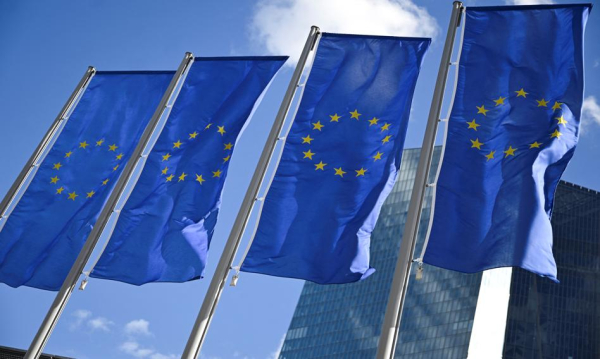The European Commission on Wednesday imposed fines of €500 million and €200 million on Apple and Meta, the parent company of Facebook, Instagram and WhatsApp, for violating the Digital Markets Act (DMA). This is the first time the EU has fined technology companies for breaking DMA rules.

The European Commission said Apple had breached the rules by preventing app developers from advertising their products outside the company's App Store.
According to the DMA, app developers should be able to inform customers about alternative sales channels outside the Apple store and redirect users to these offers free of charge. According to the EC, the company did not fulfill this obligation. On the contrary, it imposed additional restrictions on developers, as a result of which they could not fully offer their products outside the store belonging to the company. As a result, users lost the opportunity to use alternative, often cheaper offers.
Therefore, on Wednesday the EC imposed a fine of EUR 500 million on the company and ordered it to eliminate the irregularities.
In the case of Meta, the EC found that the company had breached the DMA's obligation to provide consumers with a choice . This concerns the “consent or pay” advertising model introduced by the company in November 2023 on Facebook and Instagram.
As the EC explained, Meta forced users to choose whether they wanted their data used for advertising purposes or to pay to not see ads. It also did not offer them any other choice, including the ability to decide what data would be shared with advertising companies. Under the DMA, companies must obtain users' consent to link their personal data to services, and users who do not consent must be able to choose a service that uses their personal data less.
It is true that, after talks with the Commission, Meta introduced a new version of the advertising model in November 2024, allegedly using less personal data of users. This solution is still being analyzed by the EC. However, it did not change the decision of the Commission, which imposed a fine of 200 million euros on Meta on Wednesday for violating the DMA rules.
When asked by journalists why the penalties are relatively low – considering that the DMA allows companies to be fined up to 10% of their annual turnover – officials explained that the fines take into account the gravity and duration of the non-compliance. Since the regulations are relatively new, having come into force in March 2024, they apply to violations that lasted for a few months at most. However, if the companies do not comply with the EC's decision within 60 days, it may start charging additional periodic penalties for the delay.
The EC also rejected speculation that it had delayed issuing a decision on penalties for big tech companies due to negotiations between Brussels and Washington on US tariffs. “Law enforcement and trade negotiations are two completely separate matters. We have a regulation, we have completed the technical work on the decisions and we are applying the regulations,” EC spokeswoman Arianna Podesta explained at a press briefing in Brussels on Wednesday.
EC digital spokesman Thomas Regnier stressed that the DMA is applied in the same way to all companies, regardless of who owns them and whether they are based in the US, China or the EU.
The EC also issued three other decisions concerning corporations under the DMA. An opinion was adopted that Apple violated the DMA by making it difficult for creators to make their applications available outside the App Store and imposing additional fees on them, among other things. The corporation may appeal this decision.
There were also two positive decisions for companies. The EC closed its investigation into Apple blocking users' ability to choose applications. This concerns situations where users were forced to use, for example, only the Safari search engine, supported in Apple's system (on Wednesday, the EC announced that Apple had made appropriate changes). Secondly, the EC found that Meta's Facebook Marketplace service should no longer be covered by the DMA, because the company proved that the primary purpose of the service is to enable trade between users of the platform, and not to make it easier for companies to reach customers.
The DMA rules came into force in March 2024. They aim to ensure fair competition on the EU market.
From Brussels Jowita Kiwnik Pargana (PAP)
jovi/ shm/






